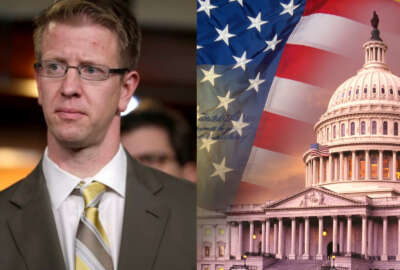For contractors, new rules means more work
If you want to do business with the federal government, you have to follow the rules. In theory, those rules are designed to make sure agencies, and in turn,...
wfedstaff | June 3, 2015 10:56 pm
If you want to do business with the federal government, you have to follow the rules. In theory, those rules are designed to make sure agencies, and in turn, taxpayers, get the best for their money.
But added regulations don’t come without unintended consequences.
“There is a tremendous regulatory oversight push from [agencies] to check things, and there’s much more scrutiny,” Chris Miller, president of government facilities for CH2M Hill said. “It’s causing us to have to incur costs to respond to that, and they’re upping the game in terms of compliance and oversight.”
Miller, who joined Francis Rose on Industry Chatter, called the continuing resolutions “tough” on business. From planning for future energy conservation projects to ongoing work in Iraq, CRs impact many parts of the business.
“I can appreciate the need to understand how much government we can afford and what the deficit reduction plan is, because that’s crucial,” Miller said. “But there are unintended consequences of just about anything we do, and that’s what we’re seeing from our side.”
While future planning is impacted, Miller said there’s an understanding between client and contractor that certain work must be done, and so the company proceeds with planning as if funding will be provided.
Along with the funding issue are on-going changes with regulations.
“They’re unknown,” Miller said. “The rules in the game keeps changing a bit, and that’s impacting industry’s ability to respond. Overall, industry understands the ethics and the requirements and the specifications of what they need to do.”
What is helpful, Miller says, is when agencies collaborate with industry to put together solicitations of work. Not just to ensure that contractors will bid, but also to ascertain that they is enough competition for the solicitation.
“if you have these large federal contracts with one contractor doing it, how do you open up competition? Miller said. “I think [agencies] are doing a better job with that, in terms of leveling the playing field. And then ideas, better innovations, come out.”
Copyright © 2024 Federal News Network. All rights reserved. This website is not intended for users located within the European Economic Area.





